Faculty & Research
Internationally renowned faculty and exceptional research opportunities

TPCB students pursue research opportunities with our internationally renowned faculty in a wide range of areas of chemical biology. Multidisciplinary research centers foster collaborations between labs that allow our students to tackle major problems that are beyond the scope of conventional research disciplines. An impressive array of state-of-the-art core facilities provides specialized equipment and expertise to support student research. Our students also participate in multiple seminar series in chemical biology and related areas, where leading scientists from around the world share their research.
The program places a strong emphasis on mentorship. All TPCB faculty are required to complete institutional training in mentorship, as well as continuing training each year. The three institutions also sponsor a variety of mentor training seminars and workshops throughout the year.
Chemical biology research in the TPCB graduate program comprises five major Research Topics and seven Therapeutic Areas:
1) Bioactive Small Molecules are powerful chemical tools for studying cellular processes and pursuing new therapeutic targets. Our research in this area spans the traditional disciplines of organic synthesis, medicinal chemistry, genetics, biochemistry, and analytical chemistry, applied to both enabling fundamental science and translational research applications in drug discovery. TPCB students pursue research opportunities in chemical methodology, total synthesis, rational drug design, library synthesis, natural product biosynthesis, high-throughput screening assays, and chemical probe development.
2) Macromolecular Structure and Function involves detailed mechanistic studies of proteins, nucleic acids, and cellular structures. The traditional disciplines of biochemistry and biophysics are merged to provide fundamental insights into the roles of these molecules in cellular processes. TPCB students use a variety of approaches to address these questions, including enzymology, X-ray crystallography, NMR spectroscopy, mass spectrometry, cryo-electron microscopy, and single-molecule methods.
3) Chemical Cell Biology applies molecular tools to study key questions in cellular function, providing both a fundamental understanding of these processes and insights into their modulation for therapeutic purposes. This multidisciplinary research requires TPCB students to integrate the traditional disciplines of pharmacology, cell biology, and analytical chemistry. Specific projects focus on chemical genetics, cellular imaging, proteomics, metabolomics, and activity-based protein profiling.
4) Biotechnology is a burgeoning area that provides exciting opportunities to develop new biologics, diagnostics, and drug delivery systems for clinical use. Students working in this area leverage knowledge from the traditional disciplines of organic chemistry, materials science, biochemistry, cell biology, and immunology to create proteins, antibodies, nanotubes, and nanoparticles with novel biological properties. TPCB research interests in this area include protein engineering, nanotechnology, and radiochemistry.
5) Computational Chemistry brings the power of quantitative, predictive modeling to current challenges in drug discovery. A wide range of traditional disciplines are blended, including physical chemistry, biochemistry, organic chemistry, applied mathematics, statistics, and computer science and engineering to analyze small molecules, macromolecules, and their interactions. TPCB students pursue research projects involving topics such as cheminformatics, docking, and protein modeling.
Translational Research is a major focus of the TPCB program, giving students exciting opportunities to contribute directly to both our understanding of human diseases and the development of novel therapeutics to treat them. Students and faculty with a wide range of scientific interests and backgrounds combine their efforts to address seven major Therapeutic Areas, including cancer, cardiovascular disease, diabetes and other metabolic disorders, immunology and antibody and vaccine therapies, microbiology and antibiotics, neuroscience and neurodegenerative diseases, and virology.
Multidisciplinary Collaborative Research is rapidly growing in importance, requiring scientists to be experts in their own discipline as well as adept at communicating with colleagues in other fields. Accordingly, TPCB students are ideally positioned to engage in such collaborations throughout their thesis research and beyond. A number of our students have also been jointly mentored by two TPCB faculty members with complementary research programs.


